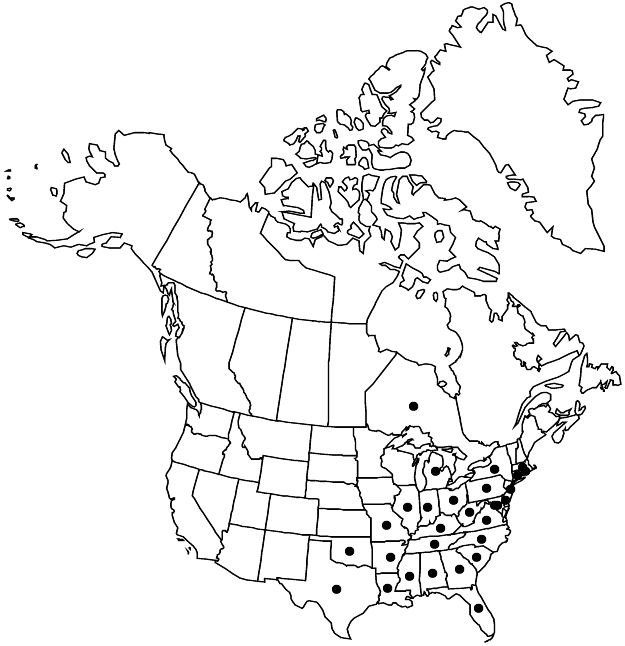Difference between revisions of "Linum striatum"
Fl. Carol., 118. 1788.
FNA>Volume Importer |
FNA>Volume Importer |
||
| Line 59: | Line 59: | ||
|publication year=1788 | |publication year=1788 | ||
|special status=Endemic | |special status=Endemic | ||
| − | |source xml=https://jpend@bitbucket.org/aafc-mbb/fna-data-curation.git/src/ | + | |source xml=https://jpend@bitbucket.org/aafc-mbb/fna-data-curation.git/src/f50eec43f223ca0e34566be0b046453a0960e173/coarse_grained_fna_xml/V12/V12_692.xml |
|genus=Linum | |genus=Linum | ||
|section=Linum sect. Linopsis | |section=Linum sect. Linopsis | ||
Revision as of 19:55, 16 December 2019
Herbs, perennial, 25–100 cm, glabrous. Stems erect-ascending, unbranched or branched from base, unbranched proximal to inflorescence, conspicuously ribbed distally. Leaves: proximal 5–20 pairs opposite, distal opposite or alternate, erect to spreading; stipular glands absent; blade elliptic to oblanceolate or obovate, 15–35 × 4–10 mm, margins entire, not ciliate, apex obtuse or acute. Inflorescences elongate panicles. Pedicels 0–4 mm. Flowers: sepals persistent, lanceolate to ovate, 1.5–3.5 mm, margins not scarious, eglandular or inner with a few delicate small marginal glands, apex acute or apiculate; petals pale yellow, obovate, 2.7–4.6 mm; stamens 1.5–2 mm; anthers 0.3–0.7 mm; staminodia absent; styles distinct, 1.2–2 mm; stigmas capitate. Capsules globose, carpels convex abaxially, 1.3–1.9 × 1.8–2.3 mm, apex depressed, dehiscing freely into 10, 1-seeded segments, segments falling freely, false septa nearly complete, proximal margins not ciliate. Seeds 1–1.4 × 0.5–0.7 mm. 2n = 36.
Phenology: Flowering Jun–Oct.
Habitat: Open or semishaded areas, swamp forests and margins, seepage bogs.
Elevation: 0–500 m.
Distribution

Ont., Ala., Ark., Conn., Del., D.C., Fla., Ga., Ill., Ind., Ky., La., Md., Mass., Mich., Miss., Mo., N.J., N.Y., N.C., Ohio, Okla., Pa., R.I., S.C., Tenn., Tex., Va., W.Va.
Discussion
The branches of Linum striatum are conspicuously ribbed distally and the carpels are convex abaxially, compared with L. virginianum, which has smooth branches and carpels that are abaxially flattened. In L. striatum, the corolla is nearly rotate; all parts of the flower are yellow except the brownish anthers.
Selected References
None.